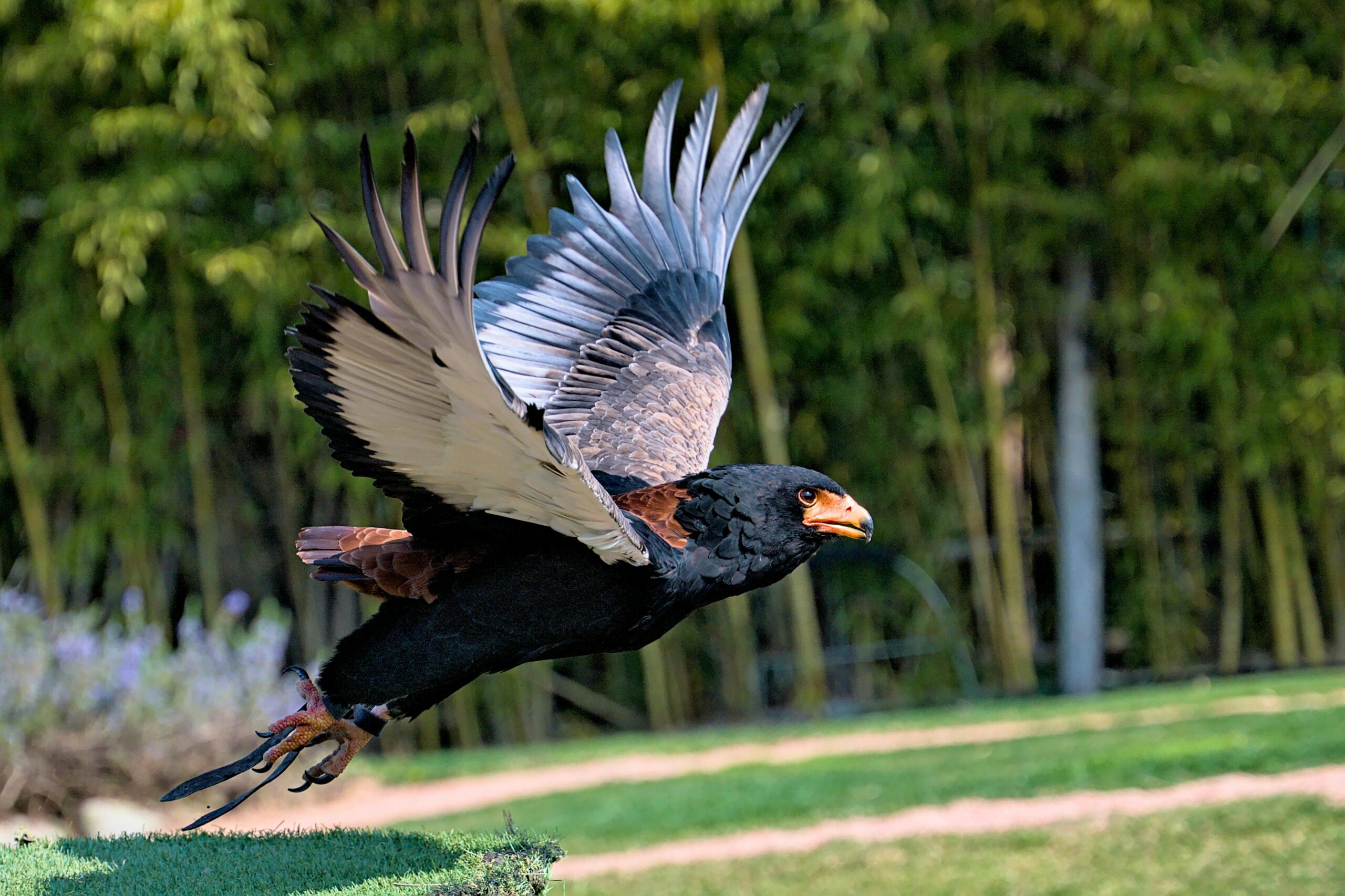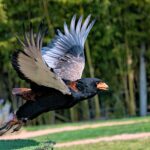Bateleur eagles, like most birds, have periods of rest and inactivity that are often associated with what humans perceive as sleep. However, birds do not sleep in the same way that mammals do. Instead of closing their eyes and entering a state of unconsciousness, birds typically enter a state of reduced consciousness where they are still aware of their surroundings but are less responsive to stimuli.
Bateleur Eagles’ Sleep Patterns
Bateleur eagles, like other raptors, are diurnal birds, which means they are most active during the day and rest at night. During the day, they spend most of their time hunting and flying, while at night they perch in trees or on cliff ledges to rest. While there is limited research on the specific sleep patterns of bateleur eagles, it is believed that they enter a state of reduced consciousness at night, which allows them to rest and conserve energy for the following day.
Monocular Vision and Vigilance
It is also worth noting that bateleur eagles, like many other birds, have monocular vision, which means they can see in two directions at once. This allows them to keep watch for potential threats while they are resting.
Factors Affecting Bateleur Eagles’ Sleep
Several factors can influence the sleep patterns of bateleur eagles, including:
-
Environmental Conditions: Bateleur eagles may adjust their sleep patterns based on environmental factors such as temperature, weather, and the availability of suitable roosting sites.
-
Breeding and Nesting: During the breeding season, bateleur eagles may spend more time awake and active, as they need to defend their territory, build nests, and care for their young.
-
Age and Health: Younger or older bateleur eagles may have different sleep patterns compared to healthy, mature individuals.
-
Disturbances: Bateleur eagles may be more alert and less likely to enter a state of reduced consciousness if they are disturbed by human activity or the presence of predators.
Adaptations for Nighttime Rest
To ensure they can rest effectively at night, bateleur eagles have developed several adaptations:
-
Perching Behavior: Bateleur eagles prefer to roost in tall trees or on cliff ledges, which provide them with a secure and elevated vantage point to rest and keep watch for potential threats.
-
Feather Arrangement: Bateleur eagles can fluff up their feathers to trap heat and conserve energy during the night, helping them to stay warm and comfortable while resting.
-
Metabolic Adjustments: Bateleur eagles may slow their metabolic rate and reduce their activity levels during the night, allowing them to conserve energy and rest more effectively.
Importance of Nighttime Rest for Bateleur Eagles
Adequate nighttime rest is crucial for the overall health and well-being of bateleur eagles. During this time, they can:
-
Conserve Energy: By entering a state of reduced consciousness, bateleur eagles can conserve energy and prepare for the demands of the following day’s hunting and flying activities.
-
Repair and Recover: Nighttime rest allows bateleur eagles to repair any physical damage or fatigue accumulated during the day, helping to maintain their overall health and fitness.
-
Cognitive Restoration: The reduced consciousness state experienced by bateleur eagles during the night may also help to restore their cognitive functions, such as memory and decision-making, which are essential for their survival and success as predators.
Conclusion
In conclusion, while bateleur eagles do not sleep in the same way that mammals do, they do enter a state of reduced consciousness at night to rest and conserve energy. This state of reduced consciousness allows them to remain vigilant and aware of their surroundings, thanks to their monocular vision. Understanding the sleep patterns and adaptations of bateleur eagles is crucial for their conservation and the maintenance of healthy populations in their natural habitats.
References:
– https://www.zoochat.com/community/threads/mixed-bird-of-prey-exhibits.353498/
– https://www.destinationwildlife.com/blog/can-a-bird-and-wildlife-watching-safari-in-namibia-help-save-grasslands-in-new-york-state
– https://www.africadreamsafaris.com/lemiyon-triangle
– https://wildlifesafaritanzania.com/an-enjoyable-visit-to-mikumi-national-park/
– https://www.britannica.com/animal/falconiform



